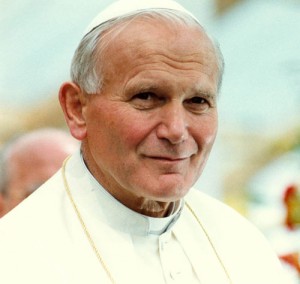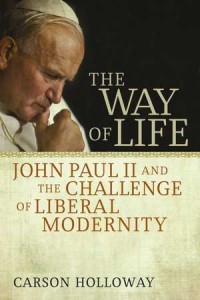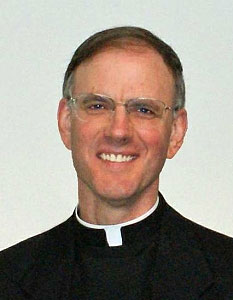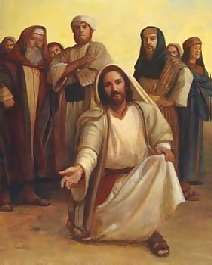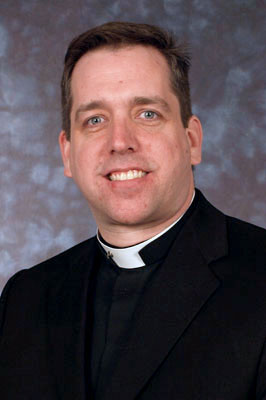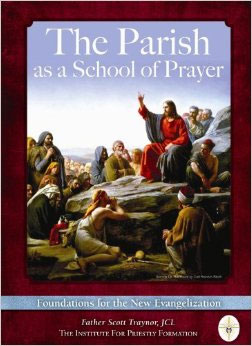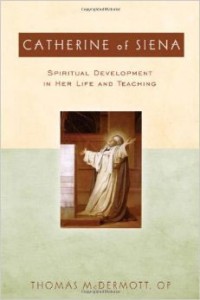From Dr. Anthony Lilles’ blog “Beginning to Pray”
During Lent, we dedicate ourselves to prayer, fasting and almsgiving. Â These practices are simple ways of expressing our gratitude to Jesus for what He has done for us. Â This in fact is the very nature of penance. Â Penance is love which responds to mercy – and this love is not content with words, thoughts and feelings. Â This love needs to express itself in a prayer the cries from the heart, in sacrifice that really costs, and in little hidden acts of kindness which comfort those who most need it.
Why do we allow God to implicate us in the plights of others, especially during Lent? Â God’s love suffers the personal plight each of us. Â He does this because He does not want us to suffer alone. Â So He seeks us out in our suffering – the suffering that we have brought on ourselves and the suffering that others have brought on us. Â He is concerned about our dignity and He is ready to do whatever it takes that we might be rectified and stand with Him who is Love Himself. Â The extent to which He enters into our misery for this purpose is revealed on the Cross. Â If we are to be His disciples, we must pick up our cross and follow Him. Â This is how the Lord extends His saving mystery through space and time – He loves us so much He implicates us in this great work of His Love.
No matter how many times we fail, no matter how great our weaknesses, no matter how inadequate we are to the demands of love — He is there with us, loving us, providing exactly what we need in the moment, and this because He really loves us that much. Â How can we not respond by offering Him food and drink when we recognize Him in the disguise of those who hunger and thirst? Â How can we not respond by forgoing a little comfort and convenience when He has already suffered so much discomfort and inconvenience for us? Â How can we not respond by praying for those who need the love of God when He has never forgotten us in His love for the Father?
When prayer, sacrifice and generosity come together in thanksgiving to God for His goodness to us, deep places of the heart are purified and we rediscover the joy humanity was meant to know from the beginning. Â Lent is all about this joy – a joy God’s love allows us to know, the joy of being sons and daughters of God, the joy of heart so beautiful it would be wrong not to share it with those who need a little joy as well.
Dr. Anthony Lilles is the author of “Hidden Mountain, Secret Garden”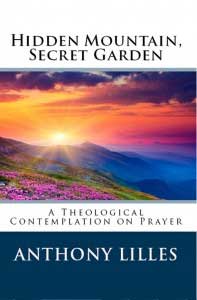
Available at Amazon.com as an ebook (click here), a paperback edition (click here).  You may also order a paperback edition at createspace.com.
Tags: catholic, catholic podcast, catholic prayer
This entry was posted on Wednesday, March 5th, 2014 at 1:56 pm
You can follow any responses to this entry through the RSS 2.0 feed.
Episode 1 – The Preliminary Lenten Days – Ash Wednesday through Saturday of that week.
[powerpress]
In “The Power of the Cross”, Michael Dubruiel penned a truly exceptional meditation on the Cross of Christ which 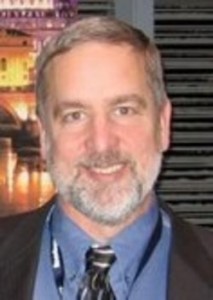 serves beautifully as a source for reflection any time of the year, but it is particularly poignant and compelling during the weeks of Lent. Several years ago Bruce and I had the chance to have a series of conversations with Michael during Lent using his book for reflection…it was a big hit with the audience. Those discussions have been remastered and made available once again here. Michael died unexpectedly in of February 2009, but his gifts continue to be shared through his books and many other venues, and hopefully through this humble portal. The sentiments and teachings Michael offers is truly timeless.
serves beautifully as a source for reflection any time of the year, but it is particularly poignant and compelling during the weeks of Lent. Several years ago Bruce and I had the chance to have a series of conversations with Michael during Lent using his book for reflection…it was a big hit with the audience. Those discussions have been remastered and made available once again here. Michael died unexpectedly in of February 2009, but his gifts continue to be shared through his books and many other venues, and hopefully through this humble portal. The sentiments and teachings Michael offers is truly timeless.
Episode 1 – The Preliminary Lenten Days – Michael discusses:
Ash Wednesday – Eternal Life or Death?
Thursday – Jesus’ Invitation
Friday – How Much We Need Jesus
Saturday – A Matter of Life and Death
Michael’s wife, author Amy Welborn, has made “The Power of the Cross” available as a free e-book available over the internet ! Â I HIGHLY encourage you to download this exceptional work…there also plans to make it once again available as a paperback book.
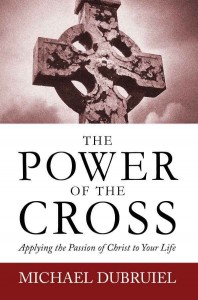 The Power of the Cross is now available as a free e-book,
The Power of the Cross is now available as a free e-book,
check out more information by going here
Check out more at the Discerning Hearts’ Michael Dubruiel page
Tags: michael dubruiel, The Power of the Cross
This entry was posted on Wednesday, March 5th, 2014 at 9:10 am
You can follow any responses to this entry through the RSS 2.0 feed.
“We must find a way to discuss the human future intellectually. Â The universal moral law written on the human heart is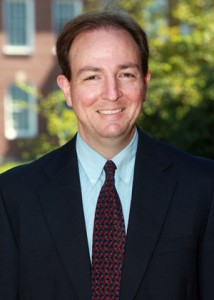 precisely that kind of grammar which is needed if the world is to engage in this discussion of it’s future” Â Bl. Pope John Paull II
precisely that kind of grammar which is needed if the world is to engage in this discussion of it’s future” Â Bl. Pope John Paull II
[powerpress]
WOL1 – Episode 1 – What is “liberal modernity”?  Maybe not so modern?  The revolution in political philosophy…like the thought of  Thomas Hobbes, John Locke…what is “good” and what are the problems.  Why is it important to discern between “self-interest” and the dignity of each human person?  Why is Bl. John Paul’s thought relevant to Western Liberalism?  What is the “Culture of Death” and the climate of moral confusion?  The moral law is the path to life.
The Way of Life, Carson Holloway examines the fundamental philosophers of modernity-from Hobbes to Toqueville-to suggest that John Paul II’s critique of modernity is intended not to reject, but to improve. Thus, claims Holloway, it is appropriate for liberal modernity to attend to the Pope’s thought, receiving it not as the attack of an enemy but as the criticism of a candid friend.
 Â
This series is based on Dr. Holloway’s book “The Way of Life”
Tags: catholic, catholic podcast, catholic prayer
This entry was posted on Wednesday, March 5th, 2014 at 8:22 am
You can follow any responses to this entry through the RSS 2.0 feed.
“When you pray, fast, and give alms”
[powerpress]
an excerpt from today’s reflection by Don Schwager: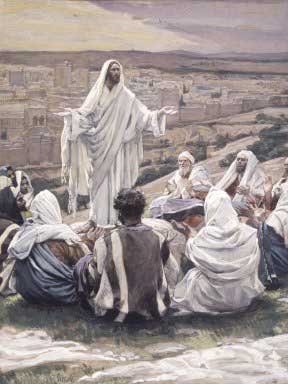
Why did Jesus single out prayer, fasting, and almsgiving for his disciples? The Jews considered these three as the cardinal works of the religious life. These were seen as the key signs of a pious person, the three great pillars on which the good life was based. Jesus pointed to the heart of the matter. Why do you pray, fast, and give alms? To draw attention to yourself so that others may notice and think highly of you? Or to give glory to God? The Lord warns his disciples of self-seeking glory – the preoccupation with looking good and seeking praise from others. True piety is something more than feeling good or looking holy. True piety is loving devotion to God. It is an attitude of awe, reverence, worship and obedience. It is a gift and working of the Holy Spirit that enables us to devote our lives to God with a holy desire to please him in all things (Isaiah 11:1-2).
What is the sure reward which Jesus points out to his disciples? It is communion with God our Father. In him alone we find the fulness of life, happiness, and truth. May Augustine’s prayer, recorded in his Confessions, be our prayer this Lent: When I am completely united to you, there will be no more sorrows or trials; entirely full of you, my life will be complete. The Lord wants to renew us each day and give us new hearts of love and compassion. Do you want to grow in your love for God and for your neighbor? Seek him expectantly in prayer, with fasting, and in generous giving to those in need.
The forty days of Lent is the annual retreat of the people of God in imitation of Jesus’ forty days in the wilderness. Forty is a significant number in the scriptures. Moses went to the mountain to seek the face of God for forty days in prayer and fasting. The people of Israel were in the wilderness for forty years in preparation for their entry into the promised land. Elijah fasted for forty days as he journeyed in the wilderness to the mountain of God. We are called to journey with the Lord in a special season of prayer, fasting, almsgiving, and penitence as we prepare to celebrate the feast of Easter, the Christian Passover. The Lord gives us spiritual food and supernatural strength to seek his face and to prepare ourselves for spiritual combat and testing. We, too, must follow in the way of the cross in order to share in the victory of Christ’s death and resurrection. As we begin this holy season of testing and preparation, let’s ask the Lord for a fresh outpouring of his Holy Spirit that we may grow in faith, hope, and love and embrace his will more fully in our lives.
“Lord Jesus, give me a lively faith, a firm hope, a fervent charity, and a great love of you. Take from me all lukewarmness in the meditation of your word, and dullness in prayer. Give me fervor and delight in thinking of you and your grace, and fill me with compassion for others, especially those in need, that I may respond with generosity.”
for the full reflection visit : Daily Reading and Meditation
Tags: catholic, catholic podcast, catholic prayer
This entry was posted on Wednesday, March 5th, 2014 at 12:01 am
You can follow any responses to this entry through the RSS 2.0 feed.
[powerpress]There’s nobody I enjoy spending Ash Wednesday with more than Mike Aquilina. Mike 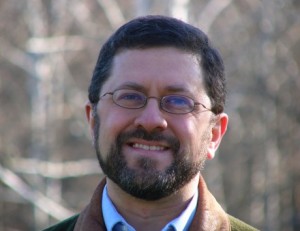 offers us rich insights on the practice of prayer, fasting and almsgiving from the perspective of the early church. He also helps us to see how we can concretely live out all three and further enrich our spiritual lives and help those around us to see Christ more fully in us and the Church. We like Mike! He’s awesome!
offers us rich insights on the practice of prayer, fasting and almsgiving from the perspective of the early church. He also helps us to see how we can concretely live out all three and further enrich our spiritual lives and help those around us to see Christ more fully in us and the Church. We like Mike! He’s awesome!
Be sure to visit Mike’s Discerning Hearts page for more from Mike.
Tags: mike aquilina, rich insights, the early Church
This entry was posted on Tuesday, March 4th, 2014 at 3:49 pm
You can follow any responses to this entry through the RSS 2.0 feed.
THE WAY OF PERFECTION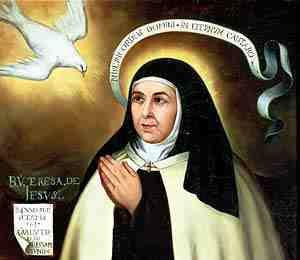
By
St. Teresa of Avila
Chapter 20 & 21
[powerpress]
For the pdf containing the complete text and footnotes click here
Describes how, in one way or another, we never lack consolation on the road of prayer. Counsels the sisters to include this subject continually in their conversation.
Describes the great importance of setting out upon the practice of prayer with firm resolution and of heeding no difficulties put in the way by the devil.
For other audio chapters of
“The Way of Perfection”
THE WAY OF PERFECTION
by
ST. TERESA OF AVILA
Translated & Edited by
E. ALLISON PEERS
from the Critical Editon of
P. SILVERIO DE SANTA TERESA, C.D.
Tags: st. teresa of avila, The Way of Perfection
This entry was posted on Tuesday, March 4th, 2014 at 3:48 pm
You can follow any responses to this entry through the RSS 2.0 feed.
The enemy acts like a woman, in being weak against vigor and strong of will. Because, as it is the way of the woman when she is quarrelling with some man to lose heart, taking flight when the man shows her much courage: and on the contrary, if the man, losing heart, begins to fly, the wrath, revenge, and ferocity of the woman is very great, and so without bounds; in the same manner, it is the way of the enemy to weaken and lose heart, his temptations taking flight, when the person who is exercising himself in spiritual things opposes a bold front against the temptations of the enemy, doing diametrically the opposite. And on the contrary, if the person who is exercising himself commences to have fear and lose heart in suffering the temptations, there is no beast so wild on the face of the earth as the enemy of human nature in following out his damnable intention with so great malice.
[powerpress]
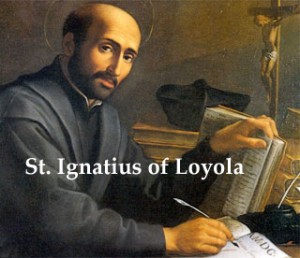 The Discernment of Spirits: Setting the Captives Free – Serves as an introduction to the Spiritual Exercises of St. Ignatius of Loyola
The Discernment of Spirits: Setting the Captives Free – Serves as an introduction to the Spiritual Exercises of St. Ignatius of Loyola
The 14 Rules for Discerning Spirits –
“The Different Movements Which Are Caused In The Soul”
as outlined by St. Ignatius of Loyola can be found here
Father Timothy M. Gallagher, O.M.V., was ordained in 1979 as a member of the Oblates of the Virgin Mary, a religious community dedicated to retreats and spiritual formation according to the Spiritual Exercises of St. Ignatius. Fr. Gallagher is featured on the EWTN series “Living the Discerning Life: The Spiritual Teachings of St. Ignatius of Loyola”.
For more information on how to obtain copies of Fr. Gallaghers’s various books and audio which are available for purchase, please visit his website: www.frtimothygallagher.org
For the other episodes in this series visit
Fr. Timothy Gallagher’s “Discerning Hearts†page
Tags: discernment of spirits, Father Timothy M. Gallagher, Timothy Gallagher
This entry was posted on Tuesday, March 4th, 2014 at 12:13 am
You can follow any responses to this entry through the RSS 2.0 feed.
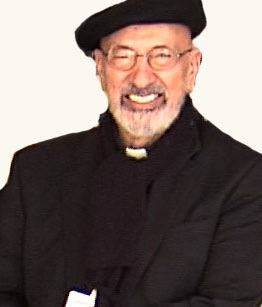 Show 59 ” Building a Kingdom of Love” – Why Do You Worry?
Show 59 ” Building a Kingdom of Love” – Why Do You Worry?
[powerpress]
*Note: This is a special reflection given by Msgr. Esseff on the morning of his departure for his mission to Peru.
Gospel MT 6:24-34
Jesus said to his disciples:
“No one can serve two masters.
He will either hate one and love the other,
or be devoted to one and despise the other.
You cannot serve God and mammon.“Therefore I tell you, do not worry about your life,
what you will eat or drink,
or about your body, what you will wear.
Is not life more than food and the body more than clothing?
Look at the birds in the sky;
they do not sow or reap, they gather nothing into barns,
yet your heavenly Father feeds them.
Are not you more important than they?
Can any of you by worrying add a single moment to your life-span?
Why are you anxious about clothes?
Learn from the way the wild flowers grow.
They do not work or spin.
But I tell you that not even Solomon in all his splendor
was clothed like one of them.
If God so clothes the grass of the field,
which grows today and is thrown into the oven tomorrow,
will he not much more provide for you, O you of little faith?
So do not worry and say, ‘What are we to eat?’
or ‘What are we to drink?’or ‘What are we to wear?’
All these things the pagans seek.
Your heavenly Father knows that you need them all.
But seek first the kingdom of God and his righteousness,
and all these things will be given you besides.
Do not worry about tomorrow; tomorrow will take care of itself.
Sufficient for a day is its own evil.â€
Lectionary for Mass for Use in the Dioceses of the United States, second typical edition, Copyright © 2001, 1998, 1997, 1986, 1970 Confraternity of Christian Doctrine;
Msgr. John A. Esseff is a Roman Catholic priest in the Diocese of Scranton. He was ordained on May 30th 1953, by the late Bishop William J. Hafey, D.D. at St. Peter’s Cathedral in Scranton, PA. Msgr. Esseff served a retreat director and confessor to Blessed Mother Teresa. He continues to offer direction and retreats for the sisters of the missionaries of charity around the world. Msgr. Esseff encountered St. Padre Pio, who would become a spiritual father to him. He has lived in areas around the world, serving in the Pontifical missions, a Catholic organization established by Bl. Pope John Paul II to bring the Good News to the world especially to the poor. Msgr. Esseff assisted the founders of the Institute for Priestly Formation and continues to serve as a spiritual director for the Institute. He continues to serve as a retreat leader and director to bishops, priests and sisters and seminarians and other religious leaders around the world.
To obtain a copy of Msgr. Esseff’s book by visiting here
Be sure to visit Msgr. Esseff’s website “Building a Kingdom of Love”
Tags: catholic, catholic podcast, catholic prayer
This entry was posted on Monday, March 3rd, 2014 at 11:08 pm
You can follow any responses to this entry through the RSS 2.0 feed.
SP#6 The School of Prayer: Foundations for the New Evangelization
Fr. Scott Traynor talks about how God wants to have an intimate relationship with us. What is the dynamic of this relationship? He longs for us to freely give ourselves to Him. Fr. Scott talks about the gift of our imagination and what is true spiritual reality as opposed to fantasy. How do I tell the difference? What is the nature of the effect? Is it lasting or does it evaporate after the experience? Is Jesus in the center of the reality we are encountering? He describes the use of Lectio Divina, the praying with Sacred Scripture, that helps us to enter into the deeper relationship we are called to by God. Fr. Scott explains the difference between the Ignatian and Carmelite understandings of “contemplation”. Is there an ordinary Catholic “mysticism”? Do we miss it?
In Father Scott Traynor’s book, Blessed John Paul II’s memorable call to make of the parish a school of prayer takes on flesh and becomes concretely attainable. Those you read these faith-filled pages will find renewed desire to create such parishes and a clear road-map toward this goal.
–Father Timothy Gallagher, OMV
Father Scott Traynor received his STB from the Pontifical Gregorian University and his JCL from Catholic University of America. He has been an instructor and spiritual director for many of the programs at the Institute for Priestly Formation.
Father Traynor is a retreat master and spiritual director who has travelled the country as a speaker at various conferences, diocesan gatherings and national conferences.. He is especially sought after to present on the topics of prayer, discernment and priestly identity and mission.
He serves the Rector of the St. John Vianney Theological Seminary in Denver Colorado.
Tags: catholic, catholic podcast, catholic prayer
This entry was posted on Thursday, February 27th, 2014 at 2:35 pm
You can follow any responses to this entry through the RSS 2.0 feed.
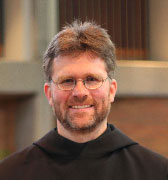 Episode 20- The Holy Rule of St. Benedict: A Spiritual Path for Today’s World with Fr. Mauritius Wilde O.S.B., PhD.
Episode 20- The Holy Rule of St. Benedict: A Spiritual Path for Today’s World with Fr. Mauritius Wilde O.S.B., PhD.
[powerpress]
In this episode, Fr. Maurtius is joined by his fellow Missionary Benedictines, Sr. Fidelis Marie Lanowich  and Sr. Gabriel Mary Oestreich of the Immaculata Monastery, Norfolk, NE and Br. Damian Cayetano of Christ the King Priory, Schuyler, NE. The group discusses what drew them to the Holy Rule of St. Benedict. They share their response to the Holy Rule and it’s guidance for their lives. The subject is obedience and balance is part of the conversation, as well as the importance of community.
and Sr. Gabriel Mary Oestreich of the Immaculata Monastery, Norfolk, NE and Br. Damian Cayetano of Christ the King Priory, Schuyler, NE. The group discusses what drew them to the Holy Rule of St. Benedict. They share their response to the Holy Rule and it’s guidance for their lives. The subject is obedience and balance is part of the conversation, as well as the importance of community.
Father Mauritius Wilde, OSB, Ph.D., did his philosophical, theological and doctoral studies in Europe. He is the author of several books and directs retreats regularly. He serves as Prior of our monastery in Schuyler.
 For more information about the ministry of the the Missionary Benedictines of Christ the King Priory in Schuyler, Nebraska visit here:
For more information about the ministry of the the Missionary Benedictines of Christ the King Priory in Schuyler, Nebraska visit here:
Tags: Gabriel Mary Oestreich, Holy Rule of St. Benedict, Missionary Benedictines
This entry was posted on Wednesday, February 26th, 2014 at 8:18 pm
You can follow any responses to this entry through the RSS 2.0 feed.
Dr. Matthew Bunson discusses the life, times and teachings of St. Isidore of Seville
Born: c. 560 Cartagena, Spain
From Vatican.va, an excerpt from the teachings ofPope Benedict XVI General Audience 2008
To understand Isidore better it is first of all necessary to recall the complexity of the political situations in his time to which I have already referred: during the years of his boyhood he was obliged to experience the bitterness of exile. He was nevertheless pervaded with apostolic enthusiasm. He experienced the rapture of contributing to the formation of a people that was at last rediscovering its unity, both political and religious, with the providential conversion of Hermenegild, the heir to the Visigoth throne, from Arianism to the Catholic faith. Yet we must not underestimate the enormous difficulty of coming to grips with such very serious problems as were the relations with heretics and with the Jews. There was a whole series of problems which appear very concrete to us today too, especially if we consider what is happening in certain regions in which we seem almost to be witnessing the recurrence of situations very similar to those that existed on the Iberian Peninsular in that sixth century. The wealth of cultural knowledge that Isidore had assimilated enabled him to constantly compare the Christian newness with the Greco-Roman cultural heritage, however, rather than the precious gift of synthesis it would seem that he possessed the gift of collatio, that is, of collecting, which he expressed in an extraordinary personal erudition, although it was not always ordered as might have been desired.
In any case, his nagging worry not to overlook anything that human experience had produced in the history of his homeland and of the whole world is admirable. Isidore did not want to lose anything that man had acquired in the epochs of antiquity, regardless of whether they had been pagan, Jewish or Christian. Hence, it should not come as a surprise if, in pursuing this goal, he did not always manage to filter the knowledge he possessed sufficiently in the purifying waters of the Christian faith as he would have wished. The point is, however, that in Isidore’s intentions, the proposals he made were always in tune with the Catholic faith which he staunchly upheld. In the discussion of the various theological problems, he showed that he perceived their complexity and often astutely suggested solutions that summarize and express the complete Christian truth. This has enabled believers through the ages and to our times to profit with gratitude from his definitions. A significant example of this is offered by Isidore’s teaching on the relations between active and contemplative life. He wrote: “Those who seek to attain repose in contemplation must first train in the stadium of active life; and then, free from the dross of sin, they will be able to display that pure heart which alone makes the vision of God possible” (Differentiarum Lib. II, 34, 133: PL 83, col 91A). Nonetheless, the realism of a true pastor convinced him of the risk the faithful run of reducing themselves to one dimension. He therefore added: “The middle way, consisting of both of these forms of life, normally turns out to be more useful in resolving those tensions which are often aggravated by the choice of a single way of life and are instead better tempered by an alternation of the two forms” (op. cit. 134; ibid., col 91B).
Isidore sought in Christ’s example the definitive confirmation of a just orientation of life and said: “The Saviour Jesus offers us the example of active life when during the day he devoted himself to working signs and miracles in the town, but he showed the contemplative life when he withdrew to the mountain and spent the night in prayer” (op. cit. 134: ibid.). In the light of this example of the divine Teacher, Isidore can conclude with this precise moral teaching: “Therefore let the servant of God, imitating Christ, dedicate himself to contemplation without denying himself active life. Behaving otherwise would not be right. Indeed, just as we must love God in contemplation, so we must love our neighbour with action. It is therefore impossible to live without the presence of both the one and the other form of life, nor can we live without experiencing both the one and the other” (op. cit., 135; ibid. col 91C). I consider that this is the synthesis of a life that seeks contemplation of God, dialogue with God in prayer and in the reading of Sacred Scripture, as well as action at the service of the human community and of our neighbour. This synthesis is the lesson that the great Bishop of Seville has bequeathed to us, Christians of today, called to witness to Christ at the beginning of a new millennium.
For more visit Vatican.va
Dr. Matthew Bunson, Senior Fellow of the St. Paul Center for Biblical Theology, is one of the United States’ leading authorities on the papacy and the Church.
His books include: The Encyclopedia of Catholic History; The Encyclopedia of Saints; Papal Wisdom; All Shall Be Well; Encyclopedia of the Roman Empire; and The Angelic Doctor: The Life and World of St. Thomas Aquinas; The Pope Encyclopedia; We Have a Pope! Benedict XVI, the first Catholic biography of the Holy Father in the English language; the Encyclopedia of U.S. Catholic History; Pope Francis. His also the editor of OSV’s “The Catholic Answer” magazine.
Tags: matthew bunson, St. Isidore of Seville
This entry was posted on Wednesday, February 26th, 2014 at 5:51 pm
You can follow any responses to this entry through the RSS 2.0 feed.
Episode 11- The Four Marks of the Church
[powerpress]
Archbishop Lucas offers insights on the US Catholic Catechism for Adults Chapter 11:
“In the earliest professions of faith, the Catholic Church identified herself as “one, holy, catholic, and apostolic.”  We find these words in the Nicene Creed professed at Sunday Mass.  Traditionally, they refer to what are known as the four marks of the Church, traits that identify the Church before the world.”
The Most Reverend George J. Lucas leads the Archdiocese of Omaha.
For other episodes in the visit our Archbishop George Lucas page
This programs is based on:
More information can be found here.
We wish to thank the USCCB for the permissions granted for use of relevant material used in this series.
Also we wish to thank Omar Gutierrez and Teresa Monaghen for their vocal talents in this episode.
Tags: Archbishop George Lucas Episode 11, Catholic Catechism, The Four Marks of the Church
This entry was posted on Wednesday, February 26th, 2014 at 4:13 pm
You can follow any responses to this entry through the RSS 2.0 feed.
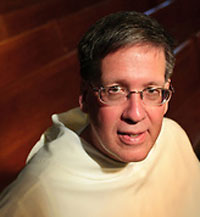 Episode 4 St. Catherine of Siena: Her Life and Teachings with Fr. Thomas McDermott-
Episode 4 St. Catherine of Siena: Her Life and Teachings with Fr. Thomas McDermott-
[powerpress]
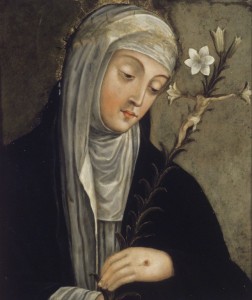 In this episode, Fr. McDermott discusses the experience of St. Catherine’s intervention in the events in Avignon, France and her influence with the Pope.
In this episode, Fr. McDermott discusses the experience of St. Catherine’s intervention in the events in Avignon, France and her influence with the Pope.
Fr. McDermott speaks of her time in Rome and the events surrounding her death. And we lay the groundwork for our future episodes which we discuss specific aspects of St. Catherine’s teachings.
Fr. Thomas McDermott, OP is Regent of Studies for the Dominican Province of St. Albert the Great and is the author of “Catherine of Siena: Spiritual Development in Her Life and Teaching” (Paulist, 2008) and “Filled with all the Fullness of God: An Introduction to Catholic Spirituality”. He obtained a doctorate in spiritual theology from the Angelicum and taught for several years at Kenrick-Glennon Seminary in St. Louis. He crrently serves as pastor at St. Vincent Ferrer, in Chicago, IL.
- The statue mentioned in the discussion found in Rome
- The bust of St. Catherine of Siena spoken of by Fr. McDermott
- The Vanni portrait of St. Catherine
Tags: catherine of siena, st catherine of siena, Thomas McDermott
This entry was posted on Wednesday, February 26th, 2014 at 3:13 pm
You can follow any responses to this entry through the RSS 2.0 feed.
Is Jesus Calling? A Spiritual Guide to Discerning Your Vocational Call with Fr. Paul Hoesing – episode 5: 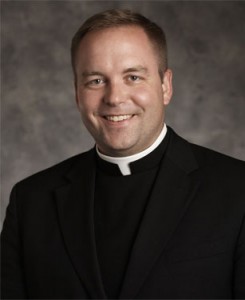
The Sixth Spiritual Lesson: Your fear is from the spirit against Christ. “God does not reveal himself through fear, pressure or confusion. This where the spirit against Christ reveals himself.”
Questions: What are your ideas and images of god the Father and how do they differ from what Jesus teaches us about the Father? Do you see the Father as someone who pressures you to do things? Where does fear drive your relationship with the Father? Recall your latest experience of peace, stillness, clarity and gratitude in God and believe that that is how the Father draws you?
[powerpress]
The Seventh Spiritual Lesson: God’s will is found in your will when you are in Christ. “God’s will, His desire for you, is not out there somwhere! It is found in your own desire when you are in Christ! That is the will of God for you!”
Questions: Does the thought of the priesthood come into your thoughts, feelings and desires when you are experiencing the peaceful presence of God?
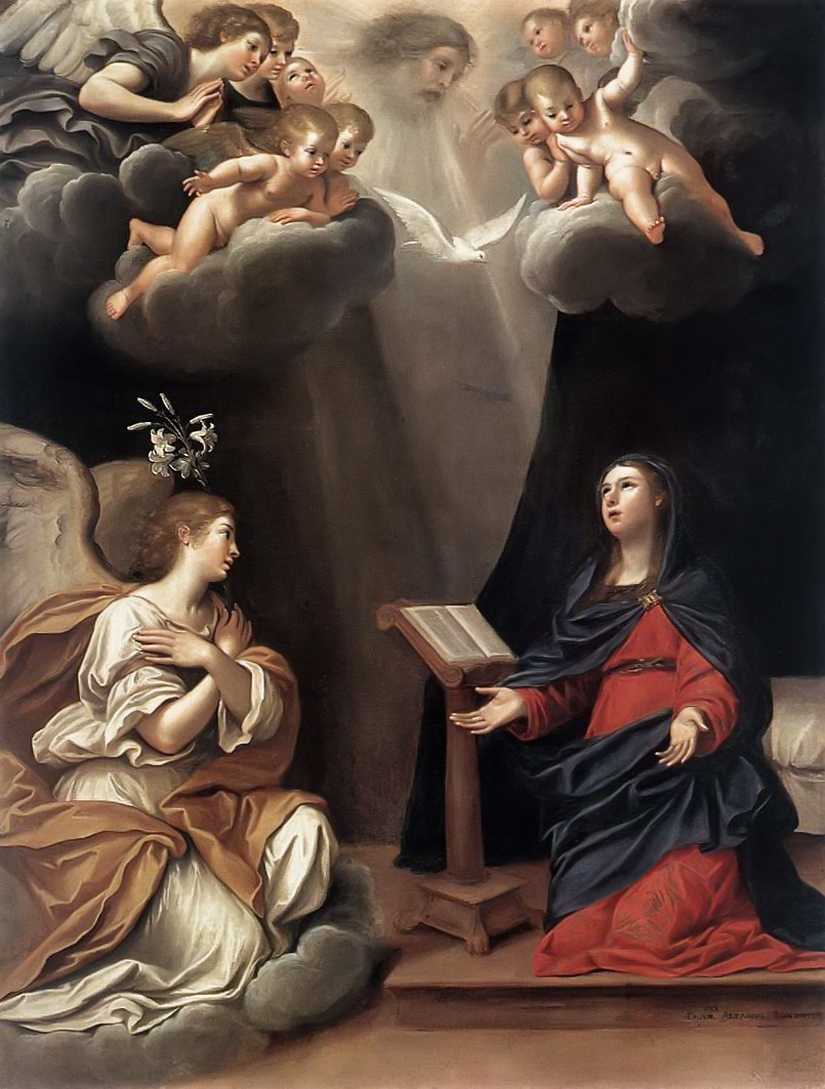 Based on “Is Jesus Calling You To Be A Catholic Priest: A helpful guide”, published by National Conference of Diocesan Vocation Director.
Based on “Is Jesus Calling You To Be A Catholic Priest: A helpful guide”, published by National Conference of Diocesan Vocation Director.
Fr. Paul Hoesing serves as the Vocation Director for the Archdiocese of Omaha, NE.
Check out “For Your Vocation.org“
Tags: Paul Hoesing, Spiritual Lesson
This entry was posted on Wednesday, February 26th, 2014 at 11:18 am
You can follow any responses to this entry through the RSS 2.0 feed.
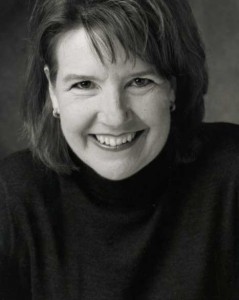 Episode 12- Seeking Truth with Sharon Doran -Announcement of the Kingdom Of God (PART 2) [powerpress]
Episode 12- Seeking Truth with Sharon Doran -Announcement of the Kingdom Of God (PART 2) [powerpress]
Episode 12 –
Announcement of the Kingdom Of God (part 2)
“Repent, for the Kingdom of God is at hand.â€
With these words, Jesus proclaimed the coming of God’s Kingdom.
People have always clamored for a King and Israel had good and bad Kings throughout her history. But Jesus Christ is the true King, the eternal King, the KING of KINGS and Lord of Lords.
Through his bride the Church, his kingdom reigns on earth and in heaven.
As partakers of the sacraments, we return to the divine nature God initially intended.
Sharon Doran serves as the teaching director of “Seeking Truth.†An experienced Bible Study teacher, Sharon has a passion for scripture that will motivate and challenge you to immerse yourself in God’s Word and apply His message to your every day life.
 “Seeking Truth†is an in depth Catholic Bible Study, commissioned by the Archdiocese of Omaha in response to John Paul II’s call to the New Evangelization as well as Pope Benedict XVI’s exhortation for all Catholics to study scripture. To learn more go to:www.seekingtruth.net
“Seeking Truth†is an in depth Catholic Bible Study, commissioned by the Archdiocese of Omaha in response to John Paul II’s call to the New Evangelization as well as Pope Benedict XVI’s exhortation for all Catholics to study scripture. To learn more go to:www.seekingtruth.net
Tags: kingdom of god, Sharon Doran
This entry was posted on Wednesday, February 26th, 2014 at 9:38 am
You can follow any responses to this entry through the RSS 2.0 feed.


